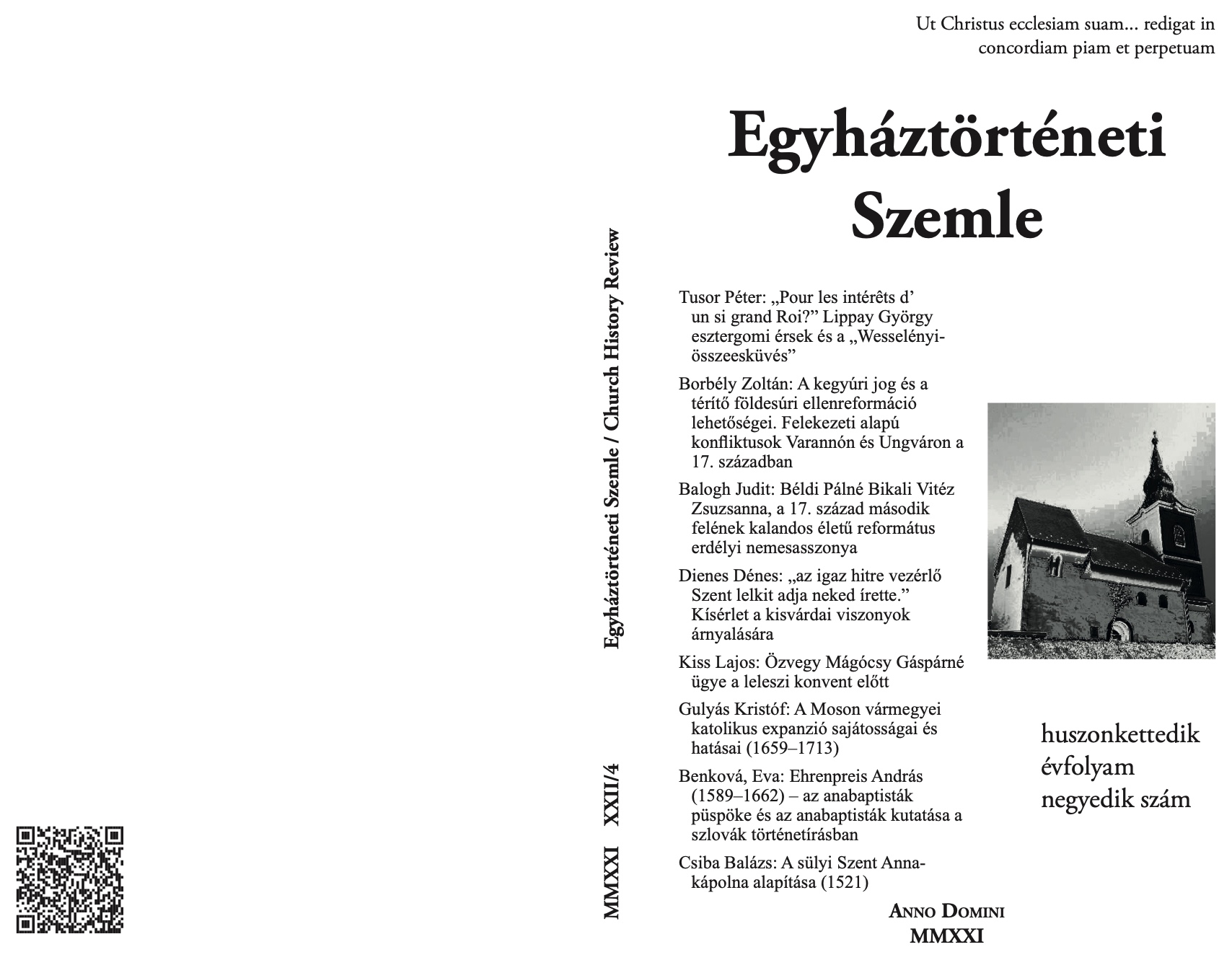Widow of Gáspár Mágócsy’s case at the Convention of Lelesz
DOI:
https://doi.org/10.54231/ETSZEMLE.2021.4.5Keywords:
Convention of Lelesz, litigation, Mágócsy, widow, Zsigmond RákócziAbstract
The Hungarian magnate Gáspár Mágócsy tried to bequeath the fate of his properties and wealth in his testament with the utmost thoroughness. He also tried to leave some land for all his relatives from his significant lands in the northeastern part of the Hungarian Kingdom. Without children of his own, most of his wealth went to his grandnephews and other members of the family. He left a few villages and towns with their incomes, chateaus and houses to his widow, Anna Horváth. His grandnephews, Gáspár Mágócsy jr. and Ferenc Mágócsy were his primary heir. They were however underage, so they needed a guardian. Gáspár Mágócsy choose Zsigmond Rákóczi – the ambitious lord of Szerencs – for the guardianship. To strengthen his position, Rákóczi married the mother of his wards, Judit Alaghy. Despite this and the testament, after Mágócsy’s death, conflict emerged between Rákóczi and the magnate’s widow Anna Horváth, regarding the heritage. The widow relinquished parts of the lands and wealth she inherited, to form alliances against Rákóczi, who pressured the widow quite aggressively. Anna made money from these lands or gifted them to other noble lords for their services. Rákóczi managed to deprive Anna out of most her inheritance, so in her desperation she tried to find justice at the convention of Lelesz, where her plaints and grievances were registered. Anna Horváth however could not make a good impression on the convention. Her requests were poorly collected and the attempt failed. Zsigmond Rákóczi took most of the heritage successfully.
Downloads
Downloads
Published
Conference Proceedings Volume
Section
Categories
License
Copyright (c) 2022 Kiss Lajos (Szerző)

This work is licensed under a Creative Commons Attribution 4.0 International License.
The author(s) reserve the copyright of their work.
The Church History Review does not restrict the rights of authors to place their manuscripts or manuscript versions on preprint servers or other hosting. This applies generally to the following formats.
- Submitted version
- Accepted version (manuscript accepted by the author)
- Published version (Version of Record)









